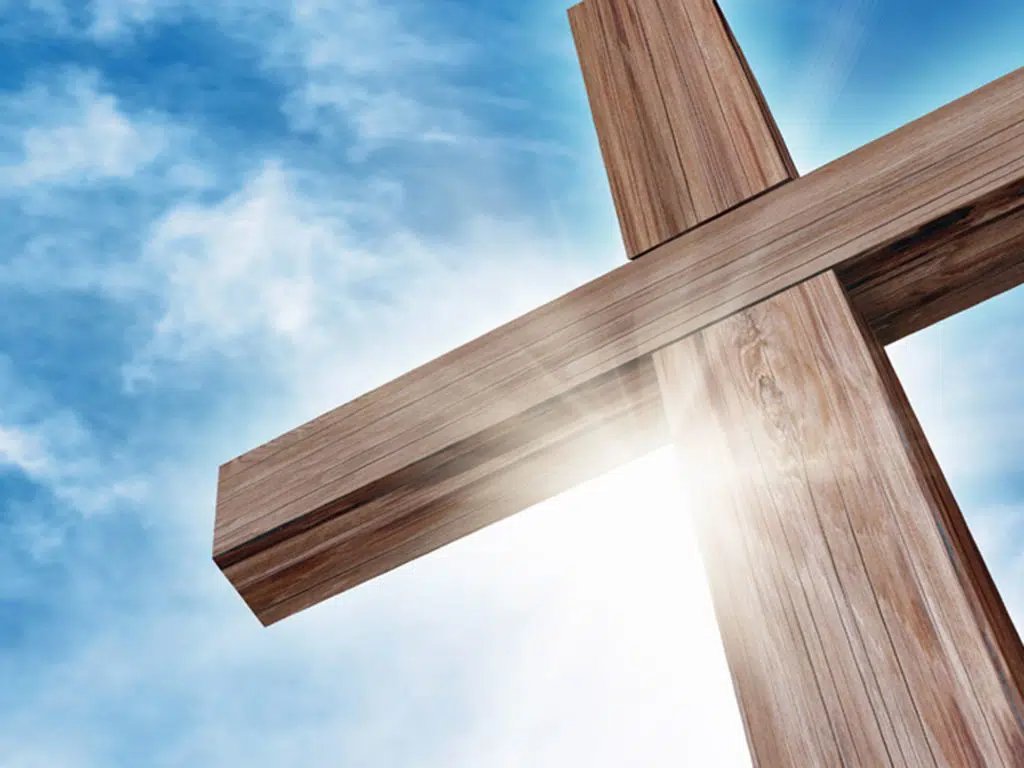Q: If God is omniscient, and so knows everything, why do we pray about problems happening now or about something that may happen in the future? It sort of seems pointless if God already knows everything. (Leesburg)
A: There always will be a mystery as to how God, who is infinite and beyond time and space, and thereby knows past, present and future at once, interacts with us, poor human beings, who are limited by time and space, and do not know the future. God’s foreknowledge interacting with our free will is a mystery. Nevertheless, foreknowledge does not entail predestination; foreknowledge does not predetermine events.
Therefore, we rightly implore God’s help in our daily needs. Our dear Lord instructed us to pray “for our daily bread” when He taught us the Our Father. At the Last Supper, Jesus said, “I give you My assurance, whatever you ask the Father, He will give you in My name” (Jn 16:23). Our Lord would not have instructed us to ask or to petition if doing so were pointless.
Also, such prayer affirms our trust in God’s divine providence. God, who loves us beyond our imagining, always will take care of us. St. Paul reminds us, “The Spirit too helps us in our weakness, for we do not know how to pray as we ought; but the Spirit Himself makes intercession for us with groanings that cannot be expressed in speech. He who searches hearts knows what the Spirit means, for the Spirit intercedes for the saints as God Himself wills. For we know that God makes all things work together for the good of those who love Him, who have been called according to His decree” (Rom 8:26-28).
Granted, as poor human beings, limited by this time and space, we will never comprehend God or His ways. Therefore, when we pray, we know that our loving God will hear our prayers. He will answer them in accord with His divine will and what is His true, good
and just. He will answer them with the best answer and in the best time frame. As St. Augustine taught, our prayers do not determine His answer or change it, but instead help us to place our complete trust in Him and accept His answer as the best one for us. After all, we also pray in the Our Father, “Thy will be done.”
Q: I have relatives who are Protestant. Sometimes we will say the Our Father together. They always end with “For thine is the kingdom, the power and the glory.” Why don’t Catholics end the Our Father this way? (Sterling)
A: When asked by His disciples, “Lord, teach us how to pray,” Our Lord replied, “This is how you are to pray: ‘Our Father in Heaven, hallowed by your name, your kingdom come, your will be done on earth as it is in Heaven. Give us today our daily bread and forgive us the wrong we have done as we forgive those who wrong us. Subject us not to the trial but deliver us from the evil one'” (Mt 6:9-13). (The translation cited is from the New American Bible.) A similar, shorter version is found in Luke 11:2-4. Both versions do not include the ending sentence, “For thine … .”
The “For thine” is technically termed a doxology. In the Bible, we find the practice of concluding prayers with a short, hymn-like verse that exalts the glory of God. An example similar to the doxology in question is found in David’s prayer located in I Chronicles 29:10-13 of the Old Testament. The Jews frequently used these doxologies to conclude prayers at the time of Our Lord.
In the early church, the Christians living in the eastern half of the Roman Empire added the doxology “For thine” to the Gospel text of the Our Father when reciting the prayer at Mass. Evidence of this practice is also found in the Didache (Teaching of the Twelve Apostles), a first-century manual of morals, worship, and doctrine of the church. (The Didache also prescribed that the faithful recite the Our Father three times a day.) Also when copying the Scriptures, Greek scribes sometimes appended the doxology onto the original Gospel text of the Our Father; however, most texts today would omit this inclusion, relegate it to a footnote, or note that it was a later addition to the Gospel. Official “Catholic” Bibles, including the Vulgate, the Douay-Rheims, the Confraternity Edition and the New American, have never included this doxology.
In the western half of the Roman Empire and in the Latin rite, the Our Father always has been an important part of the Mass. St. Jerome (d. 420) attested to the usage of the Our Father in the Mass, and St. Gregory the Great (d. 604) placed the recitation of the Our Father after the canon (eucharistic prayer) and before the fraction (“Lamb of God”). In these and other instances, the church saw this perfect prayer that Our Lord gave to us as a proper means of preparing for holy Communion. However, none of this evidence includes the use of the appended doxology.
Questions may be sent to Fr. Saunders, pastor of Our Lady of Hope Church in Potomac Falls, at [email protected] or Our Lady of Hope Church, 46639 Algonkian Pkwy., Potomac Falls, VA 20165


Pentecost Sunday